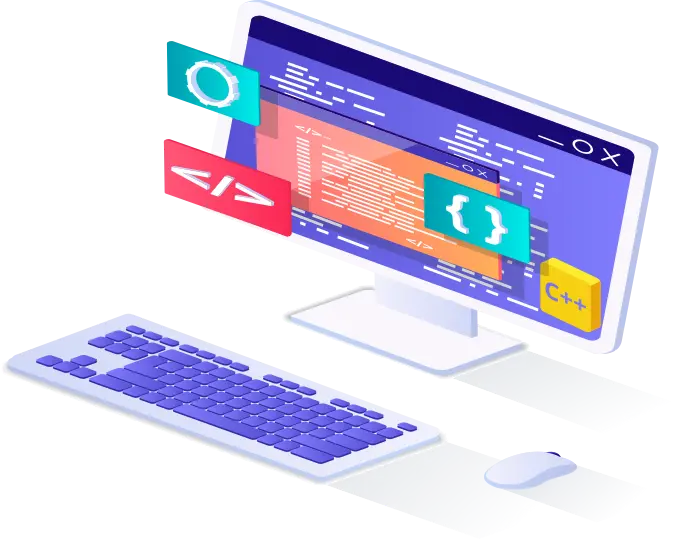Custom software has become an essential tool for businesses to operate efficiently in the modern world. These applications can be tailored to specific business needs, ensuring that they are optimized for the company’s unique requirements.
In today’s fast-paced business environment, it’s more important than ever for companies to stay ahead of the curve when it comes to technology. One way to do this is by investing in custom software that’s designed to meet their specific needs. There are several types of custom software available for businesses, each designed to help companies streamline their operations, improve efficiency, and enhance their overall performance. In this article, we’ll explore some of the most common types of custom software and how they can benefit businesses of all sizes.
Types of Custom Software for Boosting Your Business
Accounting software
Accounting software helps businesses manage their financial data, including tracking expenses, receivables, financial reporting, generating invoices, managing payroll and more.
Custom accounting software is designed to provide tailored functionality for business-specific needs to help companies maximize the efficiency of their accounting processes. Including:
- Applying user-defined events to trigger financial transaction processing.
- Creating customized priority rules for Accounts Payable (A/P) payments and Accounts Receivable (A/R) collection queues.
- Custom payroll, tax and employee reimbursement calculations.
Customer Relationship Management (CRM)
CRM software helps businesses manage their interactions with customers and clients. It can help companies streamline their sales and marketing efforts by providing a centralized platform to manage customer data, track leads and opportunities, and automate marketing campaigns and sales processes.
Custom CRM software is designed to provide insights into customer behavior and preferences, which can help businesses tailor their marketing and sales strategies. Custom CRM software can also help businesses improve customer satisfaction by providing better customer service and support.
Customer Service Software
Customer Service software is designed to help businesses manage customer inquiries and support requests. It can include features like ticket management, knowledge base management, and chatbots. By using a customer service system, businesses can improve customer satisfaction, reduce response times, and enhance their overall customer service experience.
Business Intelligence (BI) Software
Business Intelligence (BI) software is used to analyze and visualize data to support decision-making. It can help businesses identify trends and patterns, monitor performance metrics, and forecast future outcomes. BI software can also help businesses improve their data governance practices and ensure compliance with data privacy regulations.
Custom BI software is designed to help businesses analyze data and gain insights into their operations. This type of custom software can provide businesses with real-time data on sales, customer behavior, and other key metrics. Custom BI software can also help businesses identify trends and patterns, which can help them make informed decisions about their operations.
Business Process Management (BPM) Software
Business Process Management (BPM) software is designed to automate and streamline business processes. It can include features like workflow management, document management, and process monitoring. By automating routine tasks and eliminating manual processes, businesses can reduce errors, increase productivity, and save time and money.
Custom E-commerce Platforms
E-commerce software helps businesses sell products or services online. Custom e-commerce components can be tailored to the specific needs of a business, ensuring that they have the functionality they need to operate efficiently and provide businesses with the flexibility to adapt to changing market conditions and customer needs.
Custom e-commerce software can include features like online shopping cart functionality, payment processing, and shipping management. It can help businesses set up online stores, manage orders and provide customer support. By using a custom e-commerce system or components, businesses can expand their customer base, increase sales, and provide a seamless online shopping experience.
Enterprise Resource Planning (ERP) Software
Enterprise Resource Planning (ERP) software is a type of custom software that integrates various business functions into one cohesive system. This can include accounting, inventory management, financial management, human resources, and customer relationship management. By integrating these functions, businesses can improve efficiency and reduce costs by eliminating redundant processes and providing real-time information to decision-makers.
Human Resource Management (HRM) Software
Human Resource Management (HRM) software is used to manage a company’s human resources functions, including recruitment, onboarding, payroll, and benefits administration. Custom HRM software can help businesses improve the efficiency of their HR processes and reduce administrative overhead. HRM software can also help businesses ensure compliance with labor laws and regulations.
Inventory Management Software
Inventory Management software is designed to help businesses manage their inventory levels and track their stock movements. It can include features like stock tracking, order management, and forecasting. By using a custom inventory management system, businesses can improve inventory accuracy, reduce inventory holding costs, and ensure they always have the right products in stock.
Marketing Automation Software
Marketing automation software is used to automate marketing tasks such as email campaigns, social media posting, and lead generation. It provides businesses with tools to create personalized marketing campaigns and track their effectiveness.
Project Management Software
Project Management software is used to plan, organize, and track projects from start to finish. It can help businesses improve project efficiency by providing a centralized platform for communication and collaboration among team members. Project Management software can also help businesses manage resources, track progress, and mitigate risks.
Supply Chain Management (SCM) Software
Supply Chain Management (SCM) software is designed to manage the flow of goods and services from suppliers to customers. It can help businesses optimize their supply chain by automating tasks such as inventory management, order tracking, and transportation planning. SCM software can provide real-time data on the status of orders, which can help businesses make informed decisions about their supply chain. SCM software can also help businesses reduce costs and improve delivery times by identifying inefficiencies in the supply chain.
Web Applications
Custom web applications can be a powerful tool for businesses to connect with customers and clients. Web applications can be designed to provide businesses with a platform to engage with customers, provide information, and promote products and services. Web applications can also provide businesses with real-time data on customer behavior, which can help them make informed decisions about their marketing and sales strategies.
Conclusion
Custom software can provide businesses with significant benefits, including improved efficiency, better decision-making, and a competitive advantage by providing them with the functionality they need to operate efficiently and effectively.
With a variety of custom software options available, businesses can choose the type of software that best fits their unique needs and goals. By choosing the right type of custom software for their needs, businesses can streamline their operations, improve their customer experience, and achieve their business objectives.
Contact us today to schedule a free consultation and get started with custom software to boost your business.



